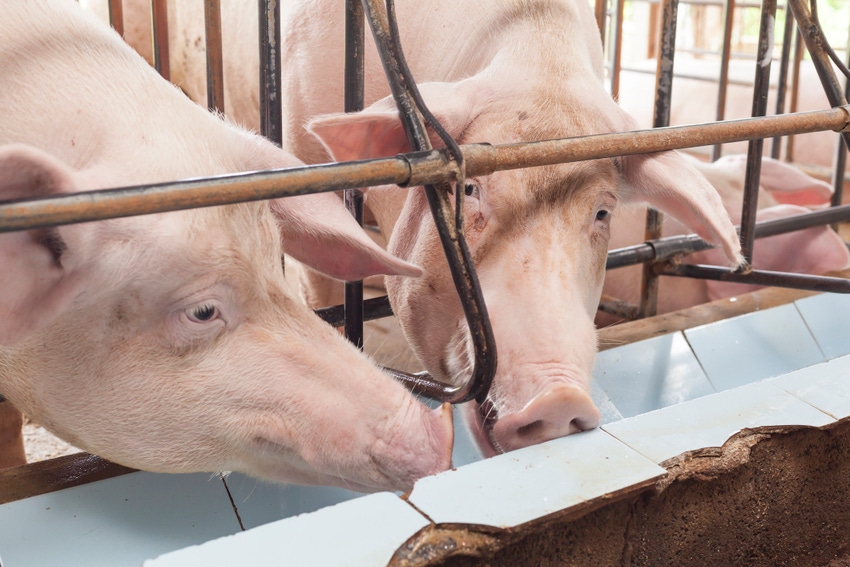New experimental ASF vaccine shows 'promise'
More work needed before commercialization, but new vaccine offers protection against current virus strain circulating in Europe and Asia.
January 23, 2020

Government and academic investigators have developed a vaccine against African swine fever (ASF) that appears to be far more effective than previously developed vaccines, according to research published this week in the Journal of Virology, a publication of the American Society for Microbiology (ASM).
A pre-publication version of the research article was recently circulated through social media, but the article has now completed the ASM peer-review process.
ASF has been devastating the swine industry in Eastern Europe for more than 12 years and Southeast Asia since August 2018. ASF virus (ASFV) is highly contagious and often lethal to domesticated and wild pigs, but humans are not susceptible to ASFV.
While there is currently no commercially available ASF vaccine, several institutions are working on various approaches to developing a vaccine. According to the report, outbreaks have been quelled — more or less — "by animal quarantine and slaughter," ASM said in an announcement.
In the Journal of Virology study, both low and high doses of the vaccine were 100% effective against the virus when the pigs were challenged 28 days post-inoculation, the researchers said.
The research was motivated by the 2007 outbreak of ASF in the Republic of Georgia, said principal investigator Douglas P. Gladue, senior scientist at the U.S. Department of Agriculture's Plum Island Animal Disease Center (PIADC). "This was the first outbreak in recent history outside of Africa and Sardinia — where swine fever is endemic — and this particular strain has been highly lethal and highly contagious, spreading quickly to neighboring countries." This is also a new strain of the virus, now known as ASFV-G (the G stands for Georgia).
The 2007 outbreak was also the genesis of the ASF outbreak that has been spreading through Eastern Europe and East Asia, Dr. Manuel V. Borca, another PIADC senior scientist, added.
There is limited cross-protection among ASFV strains, likely because the antigens and degree of virulence differ among them, and none of the historical experimental vaccines have been shown to be effective against ASFV-G, Gladue said.
So, the PIADC investigators set out to develop a vaccine. Part of the process of developing whole-virus vaccines involves deleting virulence genes from the virus, they explained. However, when the researchers deleted genes similar to those that had been deleted in older ASFV strains to attenuate them, "it became clear that ASFV-G was much more virulent" than the other historical isolates, because it retained a higher level of virulence, Gladue said. The investigators then realized that they needed a different genetic target in order to attenuate ASFV-G.
They used a predictive methodology called a computational pipeline to predict the roles of proteins on the virus. The computational pipeline predicted that a protein called I177l could interfere with the immune system of the pig. When they deleted this gene, ASFV-G was completely attenuated.
More work needs to be done to meet regulatory requirements for commercialization, Gladue said, but "this new experimental ASFV vaccine shows promise and offers complete protection against the current strain currently producing outbreaks throughout Eastern Europe and Asia."
You May Also Like


